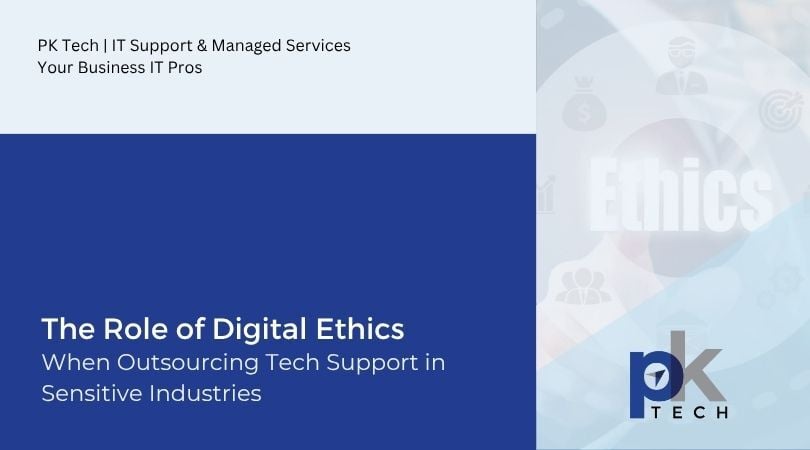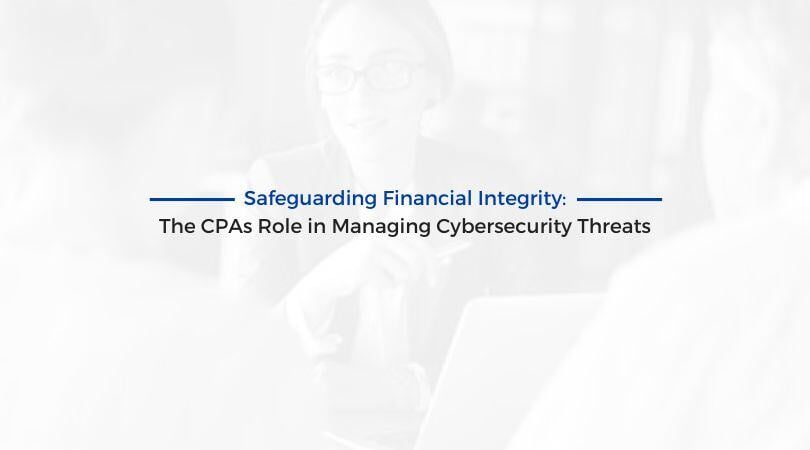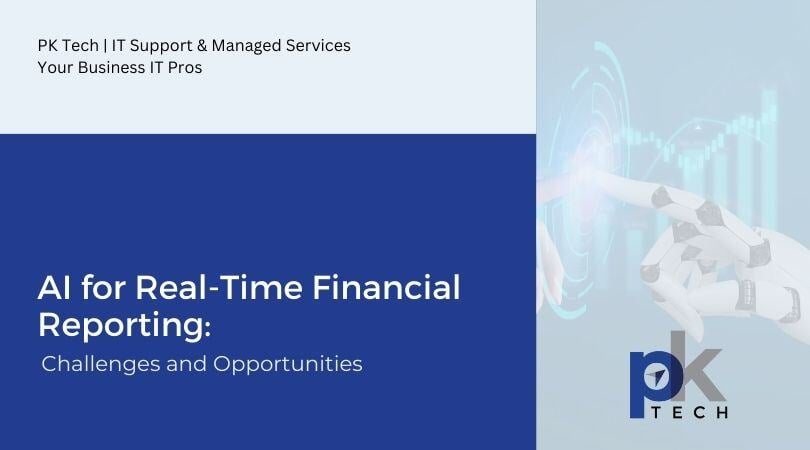Safeguarding Financial Integrity: The CPAs Role in Managing Cybersecurity Threats
For the professionals whose lives revolve around April 15th, there is a world of risk and opportunity. The landscape of financial management–with...
3 min read
PK Tech : July 9, 2025

Today’s cybersecurity landscape depends on outsourcing tech support for many organizations across industries. Not only can this lead to a safer working environment, but it can also provide a strategic advantage and cost savings to boot.
However, for sensitive industries like healthcare, finance, legal, and accounting, it’s not just about cutting costs or improving efficiency; it’s about maintaining ethical responsibility in handling digital data and systems.
As a managed IT service provider, we understand that digital ethics isn’t just a nice-to-have. This blog will cover everything you need to consider if your organization is in a sensitive industry, what you should look for in a managed IT provider, and why quality IT support matters.
Digital ethics refers to the moral principles governing the use and management of digital technologies, particularly how data is accessed, shared, and protected. When tech support is outsourced, ethical considerations become more complex. External teams often gain access to internal systems, sensitive client information, and proprietary data, raising questions about privacy, confidentiality, and data ownership.
In sensitive industries, the consequences of unethical behavior or even a single oversight can be severe. It becomes an issue that is greater than just legal compliance. The issue is rooted in client trust. Organizations must ensure their IT partners adhere to the highest standards of integrity and accountability in order to maintain client integrity.
Outsourcing in sensitive industries introduces specific digital ethical concerns, including:
As a managed IT provider, we incorporate these concerns into every client engagement, especially when supporting organizations in healthcare, financial services, or legal sectors.
Our role goes beyond solving tickets or managing servers. We embed ethical practices directly into our service model by:
When evaluating an outsourced IT support provider, sensitive organizations must consider digital ethics as a critical part of the decision-making process. Ask prospective partners:
A truly ethical IT partner should have clear answers, documented policies, up-to-date certifications, and a proven track record of working with regulated industries.
Outsourcing tech support in sensitive industries demands more than just technical proficiency. It requires a deeper understanding of digital ethics and a commitment to upholding them in every support interaction.
Properly managing the nuisances of sensitive industries is about more than just compliance. Data often deals with people’s personal financial information, medical records, or personal identifiable information. All data that should be handled with care and compliance with regulatory standards.
At PK Tech, we prioritize trust, security, and transparency to ensure our clients can confidently outsource their IT support without compromising ethical standards. When digital ethics are built into the foundation of outsourced support, organizations gain both efficiency and peace of mind.
PK Tech is proud to offer 15 years of experience with a focus on healthcare, legal, and accounting firms. We boast AICPAs SOC 2 Type II attestation, proving via third-party audit by an independent CPA firm that we passed a rigorous and comprehensive assessment of our security and privacy controls. Schedule a time to talk with our team here.

For the professionals whose lives revolve around April 15th, there is a world of risk and opportunity. The landscape of financial management–with...

Technology has long since been paving a new way forward. From ordering a hamburger at a fast food joint to managing books for a corporation,...

Here’s a statistic that will grab your attention: 43% of all cybercrime is directed at small and mid-sized businesses, according to the 2021 Data...